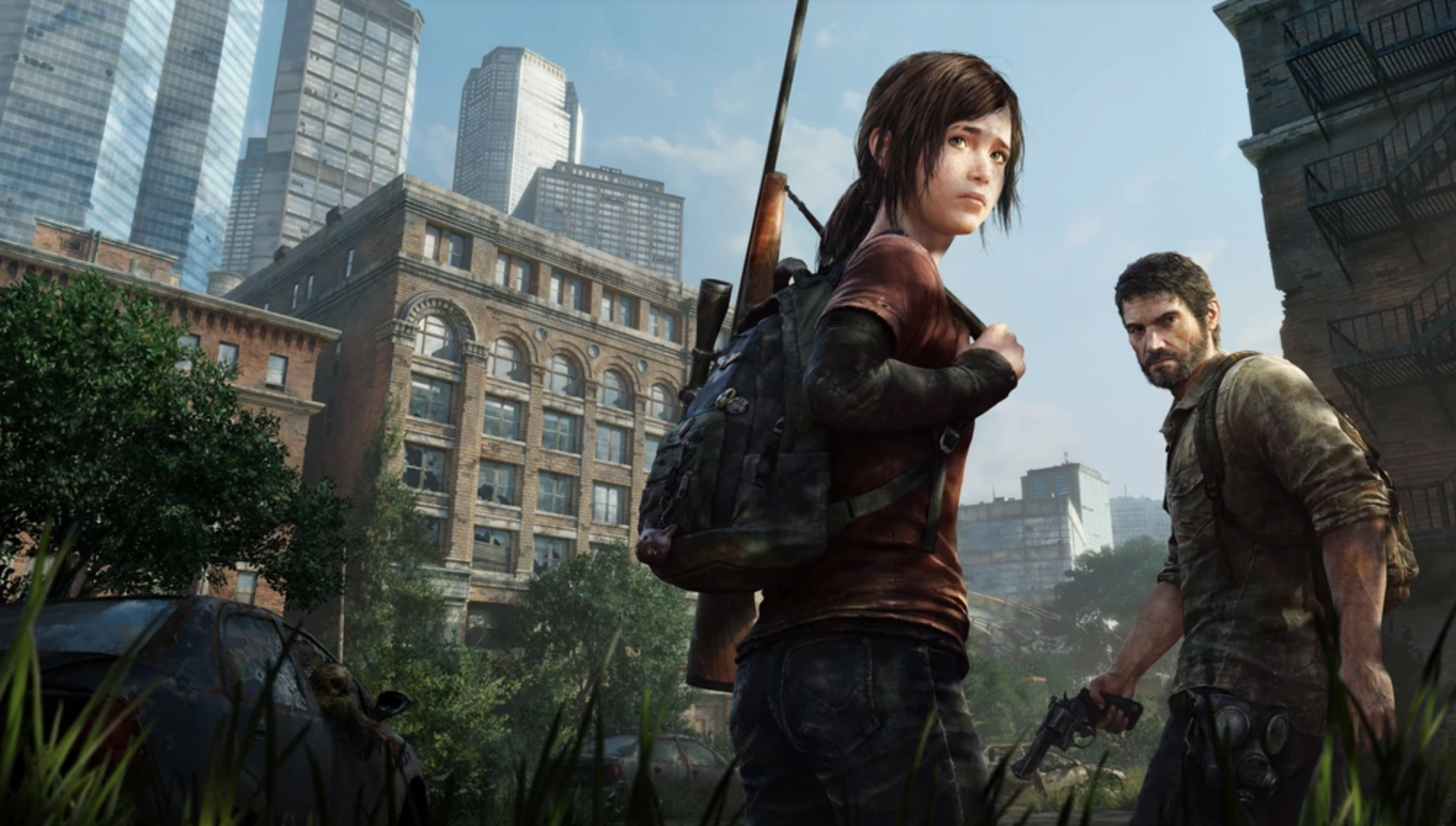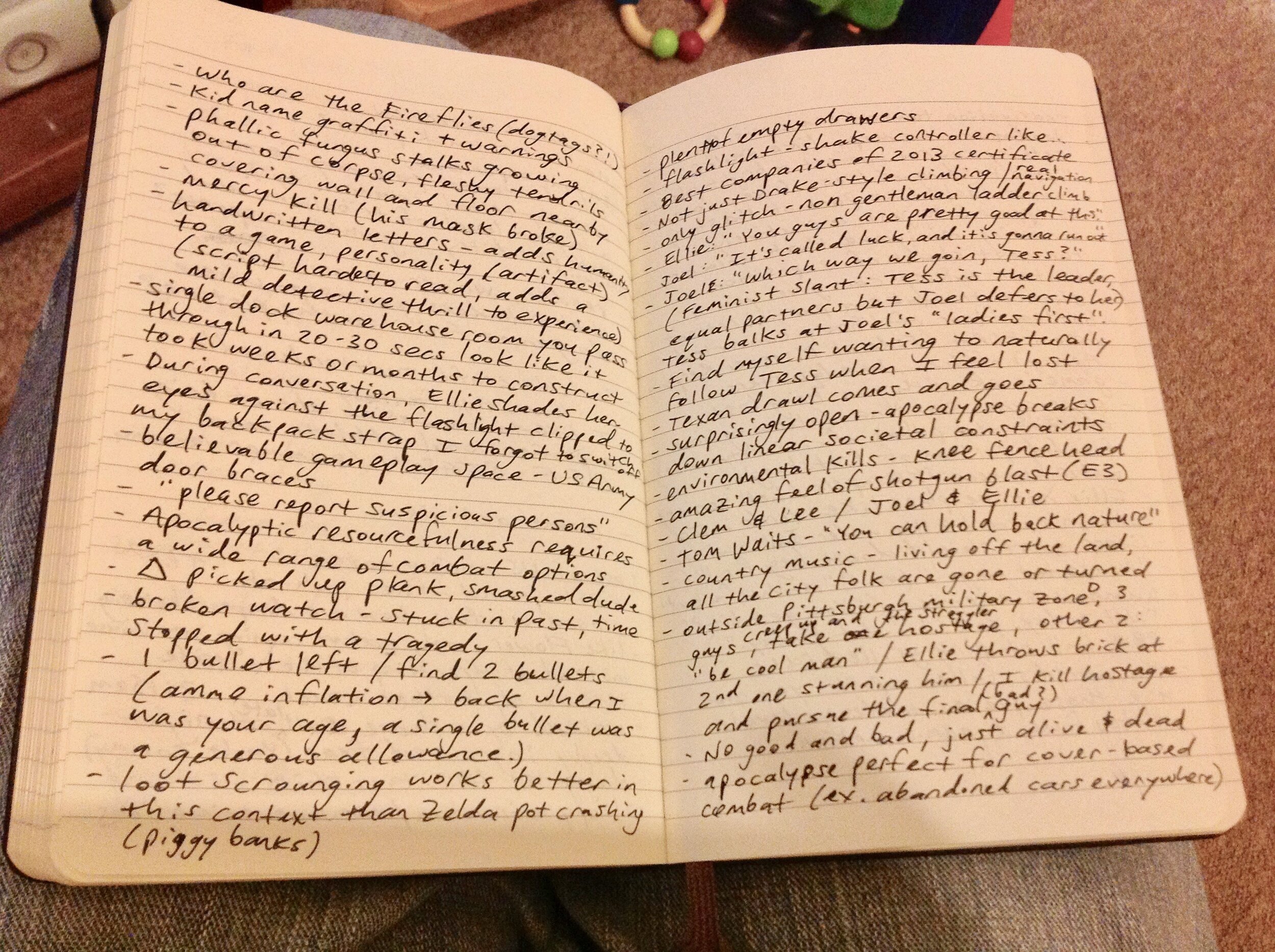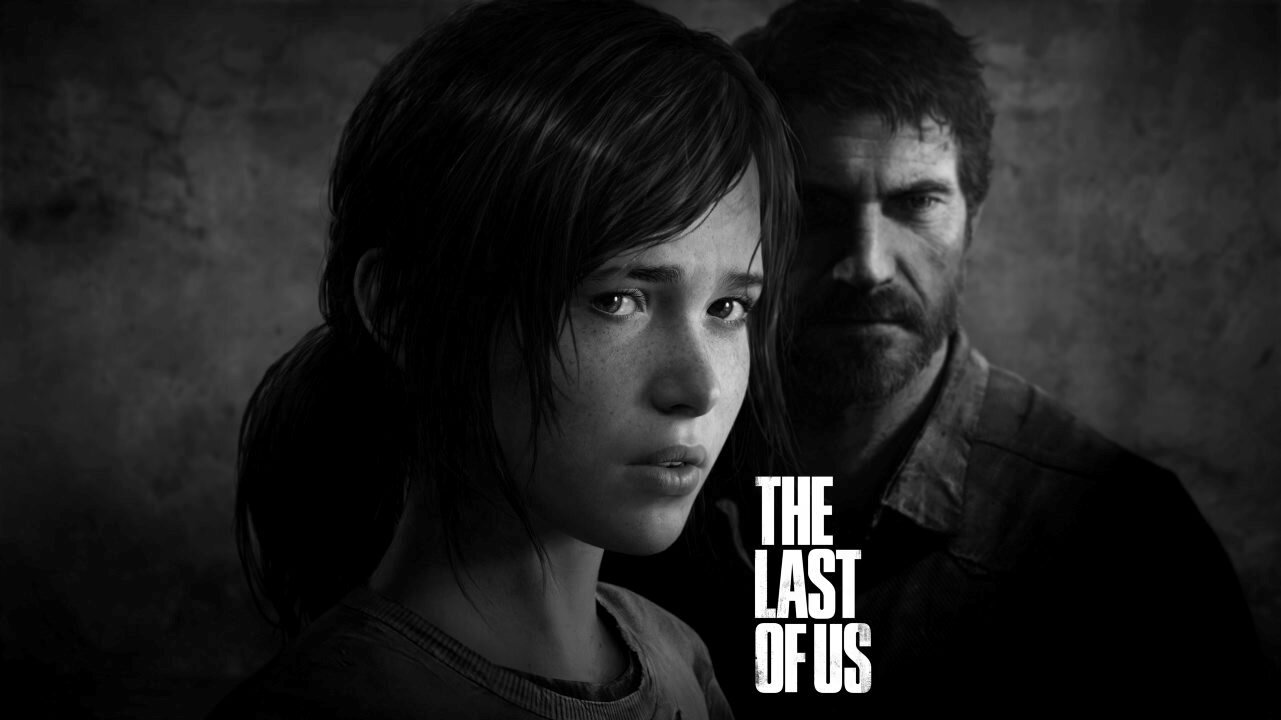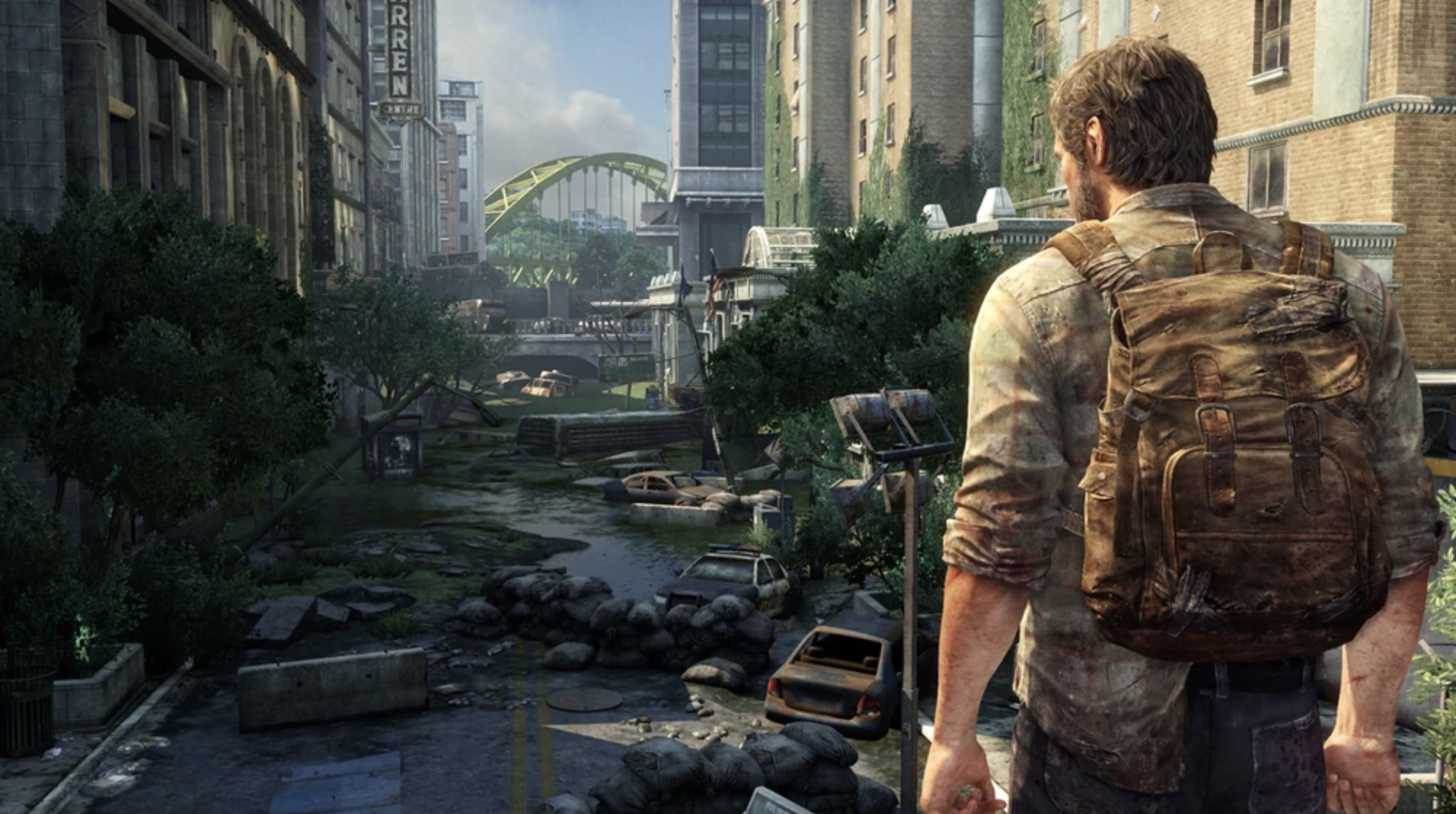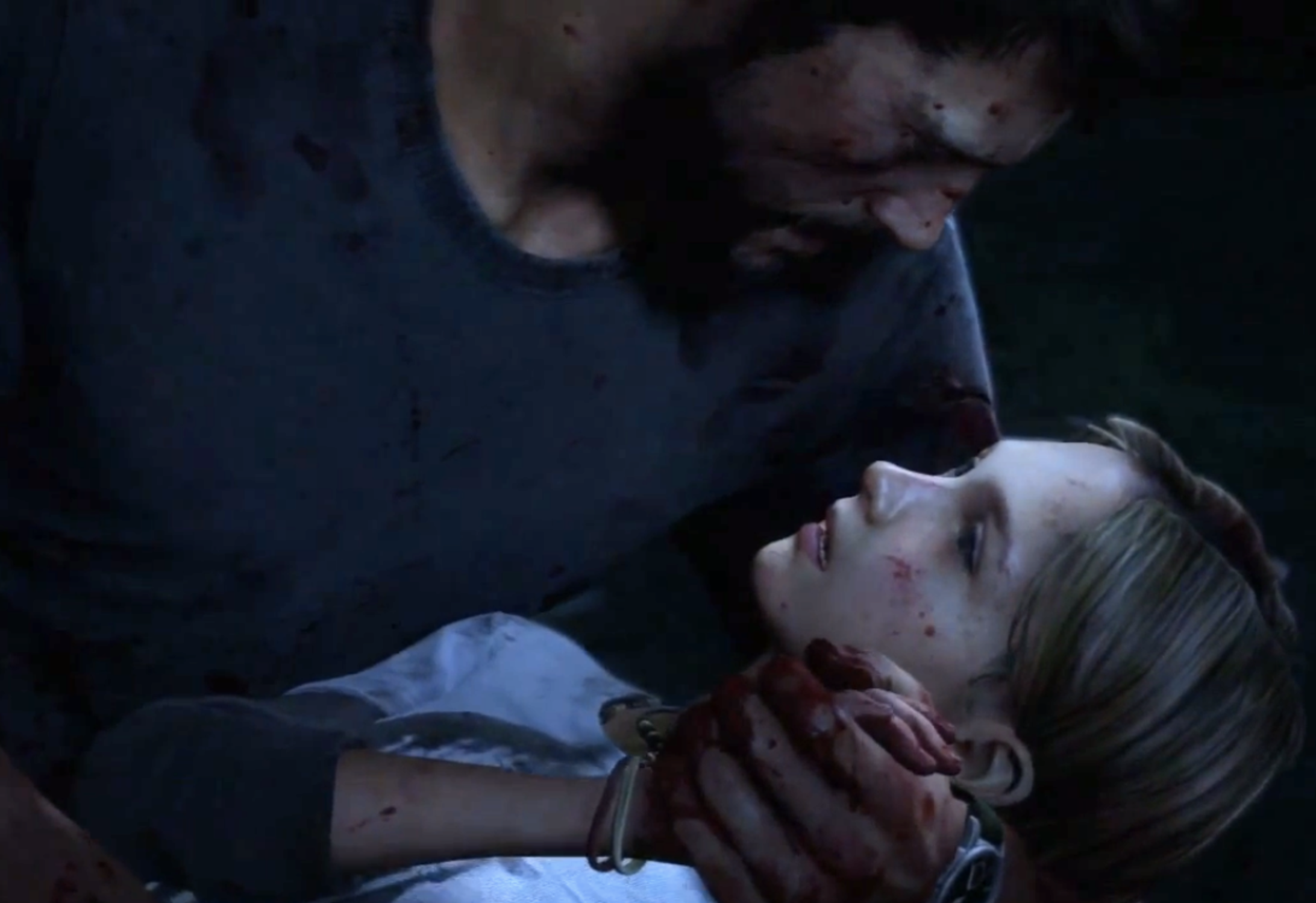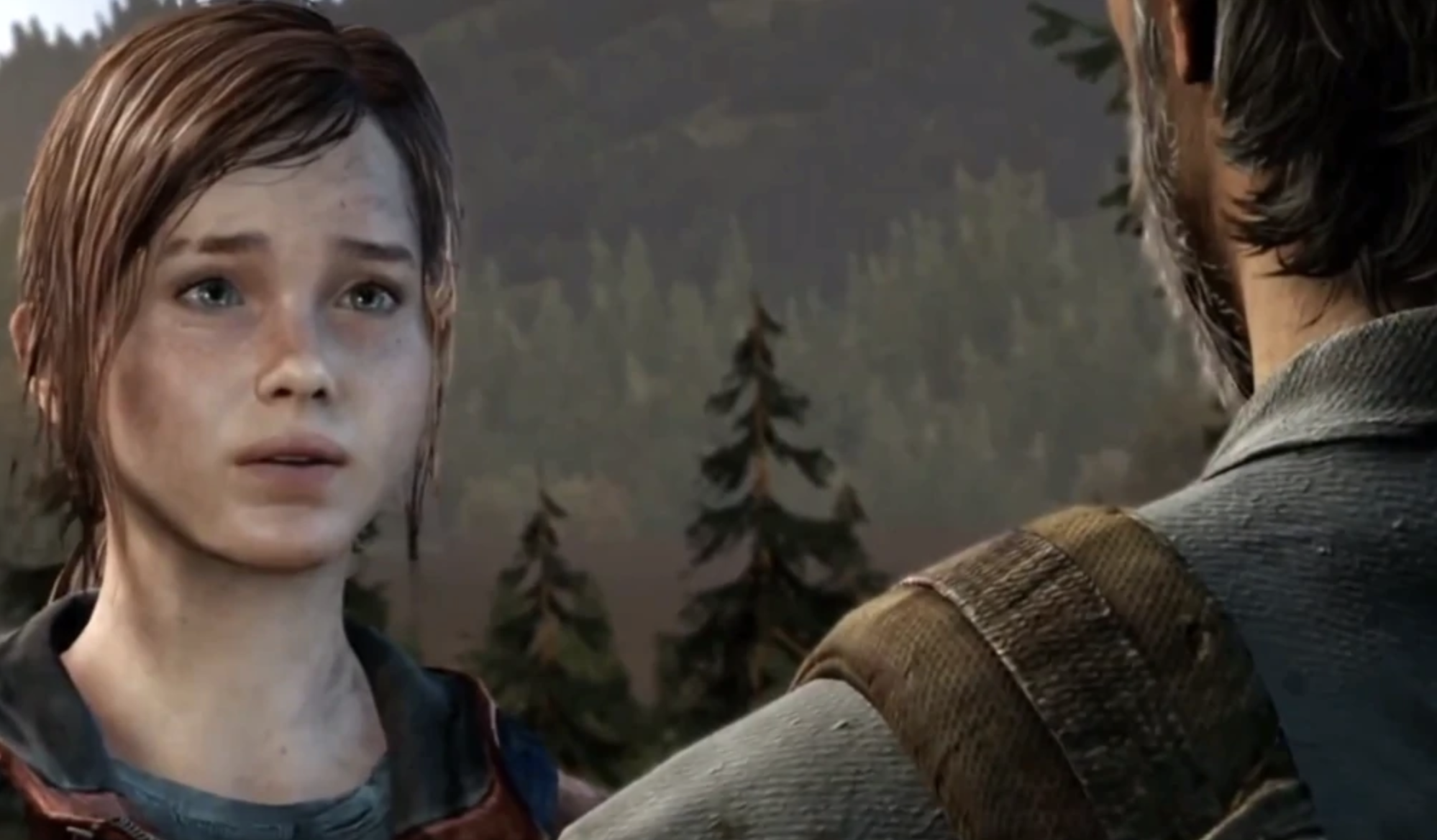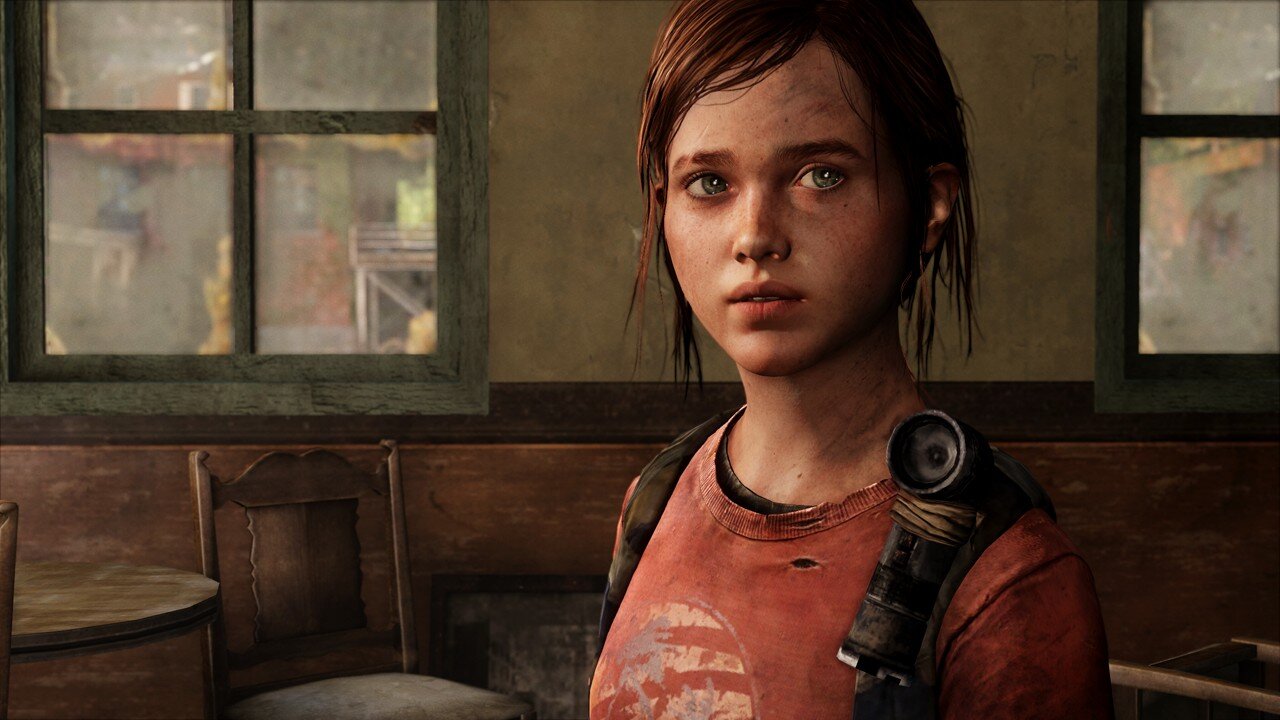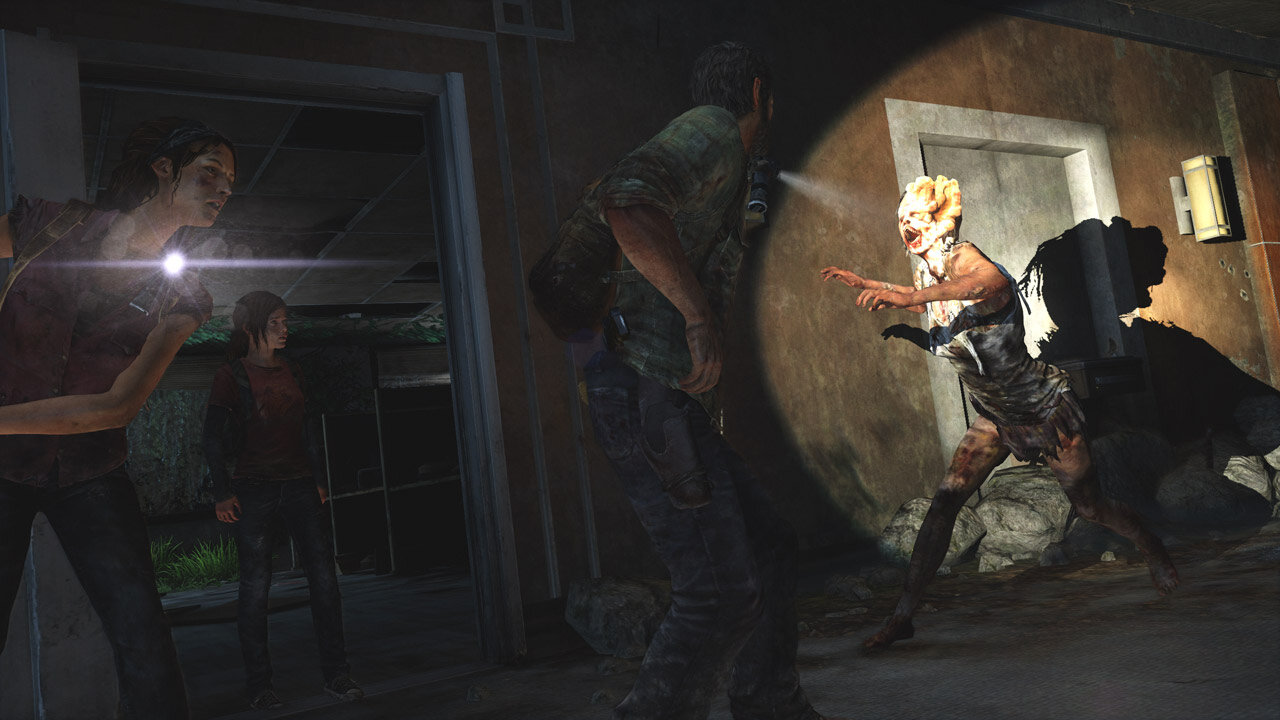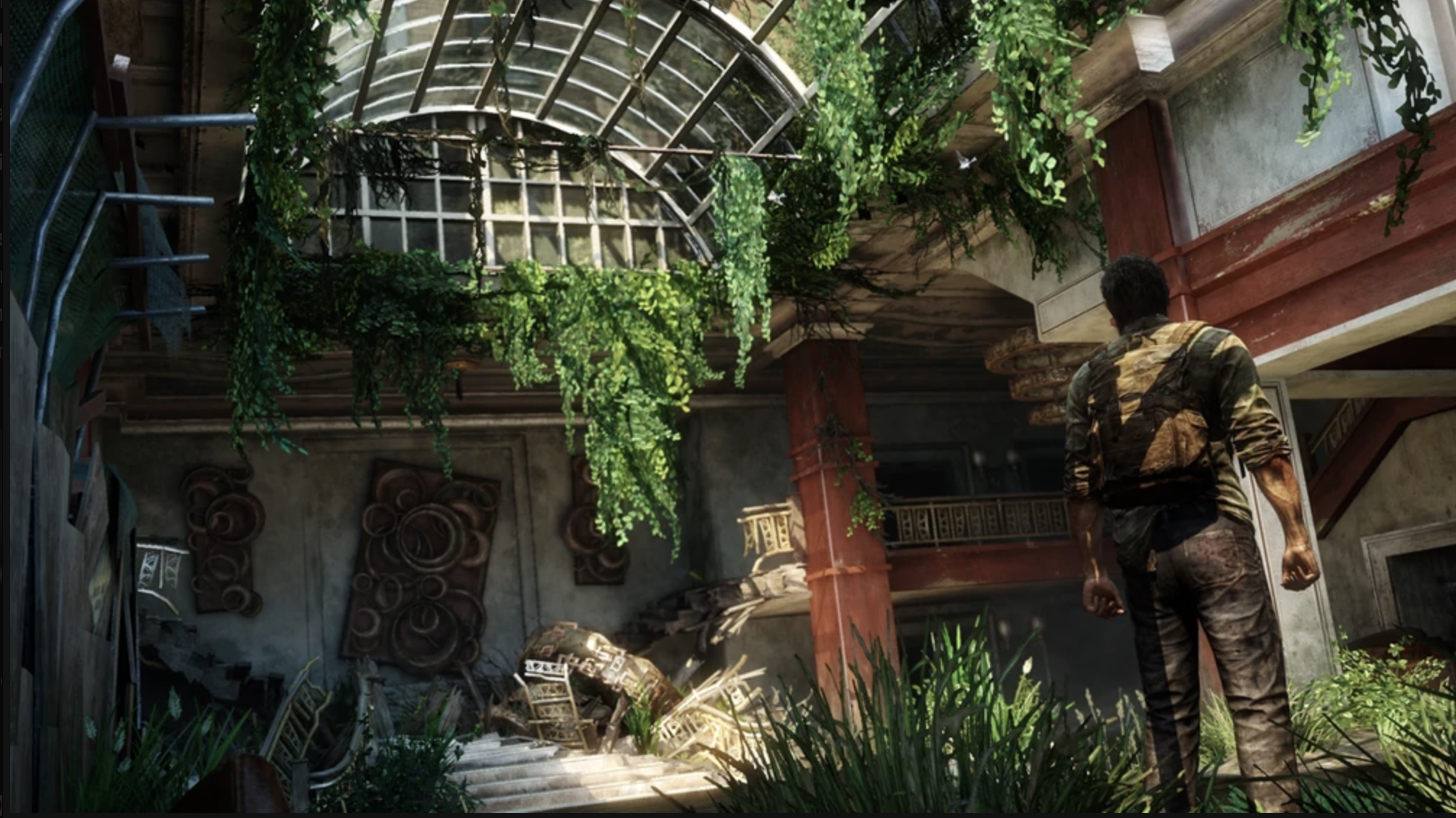The most gratifying interview of my game-journalism career took place in a London bar following a pre-launch press event for The Last Of Us.
The game’s 2013 release was about a week away and the project’s two principal creatives Neil Druckmann (creative director) and Bruce Straley (game director) were onsite doing press for the project. Because I had just finished reviewing the game for Edge, which required us getting access to the game earlier than other outlets due to our printer deadline, I happened to be the only journalist at the London event who’d actually completed the game.
A sample spread of the many pages of notes I took while playing through The Last Of Us in preparation to review the game for Edge magazine.
Druckmann and Straley were itching to get the opinion of somebody who’d completed the game so they asked if I could hang out after the event concluded in order to gauge my reaction to the experience. This wasn’t an official interview. I’d already had my pre-scheduled 15 minutes with Straley earlier in the evening. This was gravy.
We found a vacant backroom at the venue with some comfortable chairs and settled in. As the conversation went on, one of the game’s lead actors Ashley Johnson (Ellie) drifted into the room, similarly curious to hear the impressions of a critic who’d digested the game in its entirety.
It became clear within seconds that the conversation was going to yield some fascinating creator insights so I asked permission to switch on my voice recorder. I had no prepared questions written down, just a deep well of curiosity about the game I’d just experienced and couldn’t get out of my head. There was no publicist butting in to signal that we were out of time. We talked for about an hour – a loose, meandering trek through the game’s creation.
There was no room in the next issue of Edge to squeeze in such a sprawling conversation so the transcript of our conversation went up on the website. To my dismay, the Edge website shut down not long after I left the magazine in 2013, wiping out all the pieces I’d published there, including this unexpected post-mortem with Naughty Dog’s lead developers.
With the release of The Last Of Us Part II on the horizon I thought I’d salvage this conversation from the web archive and re-post it here for Naughty Dog fans who might have missed the original piece. The conversation felt worthy of preservation. Hope you enjoy it.
[Note: there are extensive plot spoilers in the conversation below so bookmark for later if you care about such things and haven’t yet completed the game.]
How did you settle on the name The Last Of Us?
Bruce Straley: Picking names, it sucks, let’s just get that out there. It’s such a commitment. You’re putting it on paper, saying this is meaningful and you’re going to go with this for eternity, you know what I mean? So there’s a lot of weight on names. Obviously people read a lot into names. The dilemma you go through is difficult, but the process is rather straightforward. We literally have a Word doc open and I create 50 names, Neil creates 50 names, we polled the company so we get another 50 names, Sony contributed a bunch of names There were just a bunch of names out there and we opened it up because nobody knows where a good idea is going to come from. There’s no source that says, this is the wellspring, tap into that, so we wanted to open ourselves up.
I think the name was originally on Neil’s list, but we separately kept coming back to it. We whittled the list down and both he and I independently picked The Last Of Us. I don’t think everybody liked it but it was one of those things that could be read a lot of different ways. You can read into it referring to a personal story about Joel and Ellie and who they are. It can be read into as being about the world and the state of the population. It can be read into as being about dilemmas about morals. It’s a very open-ended, neat title, and like everything with this game, when you saw a list of names that had that one-word sort of approach, this was something different that did what we wanted it to do because one of the goals for this project was, can we dig into subtlety?
Most games hit the player over the head with everything and you have to spell it out in clear, bold capital letters, and say, this is what’s happening right now and this is how I feel! And by allowing subtlety to enter into the characters and the experience and even the name, it felt like this is the right decision for us. We still kicked around a few others. In true Naughty Dog fashion, we have an idea that resonates and then we keep exploring other ideas that don’t work, specifically to reinforce the idea that feels like the one we’re going with. We can’t seem to come up with something better even though we keep trying so The Last Of Us worked for us, and I’m actually proud of the name. It’s different, it’s unique, it stands out as a title.
Can you share some of the alternate names that made the shortlist?
BS: Mankind was one that was in the running for a while. Americana was being kicked around. There were a bunch of those one-word ideas but The Last Of Us just felt right. [At Naughty Dog] we compare ourselves to other forms of media sometimes and book titles are seldom just one word, sometimes they have very long, elaborate titles. There are some movie names that are just full sentences. A paragraph will be the title of a film sometimes. Why do they get that luxury while video games have to simplify everything down to this blunt, Neanderthal grunt.
The game’s Pittsburgh quarantine zone called to mind images broadcast via news media in the wake of Hurricane Katrina’s devastation of New Orleans. It was chilling to see Joel fording through waist-deep water and remembering images of survivors doing the same after the Lower 9th Ward flooded. Was post-Katrina New Orleans a reference point for designing that particular stage?
BS: Absolutely. There’s a book of photography I have by Robert Polidori called After The Flood. He does all sorts of interesting books. He has another one on Chernobyl and Pripyat, the town outside of Chernobyl. He did these amazingly beautiful, horrific photos going into house after house, city block after city block post-Katrina and it’s again the juxtaposition of the normalcy and upheaval, seeing a child’s teddy bear cast into a pile of debris with drywall that has mould growing on it, a child’s trophy from a soccer match lying on a mattress that’s obviously been soaked through and through. It’s those kinds of contrasts that bring the life back into – it’s not just decay and rot and post-apocalyptic grey, it’s a human world that we’re playing with when we portray this destruction. If it’s just nature wiping out nature, nature has been doing that forever. That’s the way nature renews itself. It’s the fact that it’s the world we’ve created being pushed into disarray that affords us the ability to say that something realistic, something you can actually believe in happened here.
It’s that collision of the familiar and unfamiliar that gets me interested in little backstories. You can put the pieces together when you can see the water’s not high right now but you can see the water line at a different level and you can see something cast up on the hillside once the water line receded. And then you’re like, there’s a story here, I can see somebody has dragged a bag of goods and supplies, and they’ve sifted through it. And you realise somebody’s been here. These little stories and vignettes piece together experiences you don’t get to witness. But Hitchcock proved that it’s almost better not to see it because it lets you fill out the greater story. It’s fun to play with.
Exposition sucks, right? You don’t want to hit everybody over the head all the time. Let it be subtle, let it rest, let these little pieces be picked up. I guarantee there are probably a tonne of things you missed and that somebody else is going to get. That’s the fun thing about this. Depending on how you play it and what your perspective is at that time and where you’re at, you’re going to see different things coming out of the environment.
Naughty Dog has been synonymous with Uncharted for a number of years now, yet you’ve bucked marketing conventions by launching The Last Of Us, a new property, without a Drake-style poster boy. Instead you’ve got a bearded guy in a flannel shirt. What’s more, Joel and Ellie are equal partners so there isn’t even a clear focal point character-wise, which seems like a marketing liability in itself. How much did you wrestle with the potential commercial impact of these creative decisions?
BS: The experience that we wanted to deliver really superseded all doubts that we had. We invested and committed to telling this story and developing these characters. Neil and I were talking about these ideas together in a room by ourselves, feeling out what this game could be, and we’ve got nothing to play, you’re just in your head talking about ‘what if this happened?’ and then after that ‘this other thing could happen’. You’re experiencing that mentally and you think, I want to play that game. Nobody’s making that game and we have that opportunity. We have one of the most talented, if not the most talented team in the industry, we have a wealth of tools that we’ve built up including the engine that came from Uncharted, which was an amazing engine. And then the storytelling knowledge that we accumulated from the Uncharted series, how does that lend itself into this new genre?
Neil, you mentioned to us earlier that you think The Last Of Us is a polarising game. Why?
Neil Druckmann: I should say, I’m probably a bad judge of this stuff, because going into E3, I remember telling Bruce that I don’t think we’re going to have the kind of reception we usually do. I really felt that with Uncharted, we kind of hit that summer blockbuster, all that spectacle and the collapsing building, we knew we had something that was going to wow people. With this, I was more unsure.
It’s the position I’m in now that’s very different. As I go up, I lose confidence. But it was a much more intimate experience and subtle experience, and I wasn’t sure if people would pick up on it or how they would read it. Maybe they would interpret it in a totally different way from the way we interpret it. But I was pleasantly surprised. Now before launch, I feel the same way. Some of the stuff in the game is very subtle and I question whether it’s too subtle, whether we should’ve hit things on the head a bit more. But at the end of the day, we keep it as subtle as we would want it to be. That’s the thing at the end of the day that Bruce and I have set for ourselves: let’s make the game we really want to play. Let’s make the game that’s not out there but we really want to play.
Aren’t those the best pieces of art? The ones that don’t seem overly concerned if you read or watch them because the author or filmmaker simply wanted to express something personal?
ND: There’s something really unique – and I know Bruce feels the same way but I’ll just speak for myself – I’m very lucky to be in the position I’m in because Sony gives us complete freedom. Their attitude is, whatever you guys want to do, we’ll support you. And at the same time I have bosses above me, Evan and Christophe who run the studio, and they gave us creative freedom. So I don’t have the burden about making money for the studio. I don’t look at the budgets. I don’t do any of that stuff. My job is just: do the best game possible. So I find that there’s a certain responsibility that comes with that. Even though we’re making a triple-A game, let’s do the game we want to make, let’s do something unique, let’s take a bunch of chances, let’s put a 14-year-old girl on the cover. It’s weird that that’s taking a chance, but at the same time, we love Joel and Ellie, and the thing I love is that ultimately you play as her. And that’s the thing we’ve just been lying about, and I can’t wait to hear people’s reaction to when you make that transition. Again, that was one of those things that we decided, let’s just do it subtly, let’s not make this big moment where the camera’s going to do some crazy thing when it shifts perspective.
Even with the deaths, it was important for us to treat them really subtly. For example, Tess dies offscreen. In the part later on where Joel collapses off the horse, that was really small and really short. It was important not to linger on those too much. I guess, except for the first death in the beginning. That was important to linger on.
I’ve lost my composure at the end of a small handful of games, but this was the first time I’d ever been moved to that degree in the opening 20 minutes of a game. I probably should’ve seen the tragedy coming, but it still caught me off guard.
ND: I wonder why that is. I wonder if it’s because there are so few games where kids can die, where kids are in real jeopardy. You look at GTA: let’s just take kids out of the equation. You look at Oblivion: let’s just take kids out of the equation. Yeah, I know it’s controversial and I know it’s harsh, but it’s part of the world, and it’s part of the story we’re trying to tell and it was so important to show that. I kept telling Evan, I was like, I’m waiting for some Sony executive to come in and say, ‘you have to take out this scene, you have to cut it, it’s too much’. And it never happened.
There’s also the fact that your audience has been conditioned by the pulp genre fiction of the Uncharted series to believe that characters you like tend to be insulated from death.
ND: And it’s important for that genre to do that, by the way, because that game has a certain tone. If you start going there, you would break that tone, you would break what is Uncharted.
Playing as Joel’s daughter at the beginning of the game beautifully reinforced the “us” part of the game’s title. You’re not just playing as a single character, you’re empathising directly with a contingent of people affected in different ways. And later when you switch back and forth between playing as Joel and Ellie at the end, you get to experience first-hand how much each depends on and cares about the other.
ND: It’s funny that you say that because one of the things we just can’t talk about is how we play with perspective, and how perspective helps you empathise with characters. We know it’s much easier to empathise with the character you play as because they’re making the choices that you make, because you’re making those choices. So then to switch that and all of a sudden have Ellie in the position of power – I don’t know if you actually thought Joel might be dead.
When he fell on the exposed rebar I didn’t like his prospects.
ND: Yeah, and then it was very deliberate at the end to have you play as Ellie. We really wanted, after all the things that Joel has done to save her, to objectify him and let you see him from the outside. How did that make you feel when you played it?
It was striking to see him in such a vulnerable position, especially since he’d played the part of the guardian himself for so much of the journey. Joel is such an interesting character because, despite being the leading man, there are all these telling moments that illustrate how insecure he is, how little of a leader he truly is. There’s a bit of ambient gameplay dialogue in which he asks Tess, “Which way we goin?” He’s basically admitting that he doesn’t know where he’s going. So many developers have been trying to figure out how to sell the ‘everyman motif’ and you seem to have finally cracked the code somehow.
ND: The evolution of that is really interesting, and I can only take credit for so much of it because a lot of it really was [Joel’s actor] Troy Baker. I had a certain idea for Joel initially which was much more of a Josh Brolin in No Country For Old Men type – very quiet, very cool under pressure, and Troy really started playing him as a character that really gets swept away by his emotions, he can’t help himself sometimes. When he’s angry, he doesn’t want to but he lets Ellie know. And then there’s that scene in the ranch house where he’s telling her that she’s not his daughter. He’s trying to insult her at that point because she got to him, and he doesn’t know how else to deal with it. But in a way, at that moment it’s too late for him because the seed was already planted and at that moment he’s going to see it to the end.
Let’s talk about the very last exchange in the game between Joel and Ellie. Story-driven games have notorious difficulty with figuring out how to drop the curtain in a satisfying way, yet The Last Of Us strikes just the right balance between conclusiveness and ambiguity. Ashley, as the actor bringing Ellie to life, what did you think when you read those pages of the script for the first time?
Ashley Johnson: It’s funny because that ending, everybody’s interpreted it so differently. In my mind, Joel and Ellie have already gone on this whole journey and Ellie is fully prepared – if finding the cure and getting the cure means dying – then so be it. But finally having a connection and a relationship with somebody, that becomes more important because it’s like, I’ve finally connected with somebody in this world. If your choice is to save me over everybody else in the world then…ok. I trust you now and let’s live life.
In that moment she’s giving Joel permission to lie to her, which is a bit unsettling but also beautiful in the level of trust it conveys.
BS: I like that it can be read different ways. Like we were talking about earlier with the title, just with the two little syllables of Ellie’s “OK” to Joel, depending on where your head space is when you get there and how committed you are toward Joel and his goals, how aligned you are with who he is versus how much you’re committed to Ellie and what her perspective is, that commitment that she had. She was ready, to the ends of the earth, whatever it’s going to take, we were going to do it. It could really be read in several different ways, and it is open-ended and it is a somewhat ironic ending. It’s not your typical ending, but it’s still a nice resolution to me. It has a nice finality of… OK, all right.
ND: Some people read it as, oh, they left it open for a sequel – cool! And what we’re saying is, if we never make a sequel, that’ll be alright. In our mind the journey has been wrapped up.
In a podcast I was listening to recently, there was a discussion about when it’s OK and even prudent for parents to lie to their children because there’s an aspect of life that they’re not yet mature enough to process. Yet Ellie is too savvy to be persuaded by Joel’s denial in those final moments. She clearly knows what the score is and why she was important.
ND: We were talking about this between ourselves yesterday. Ellie’s got a good bullshit detector, which is why she knows something is up with David from the moment she meets him. She doesn’t know what, but she knows there’s something off.
You were asking earlier why I thought the game would be polarising. There are people who hate the ending with a passion. Because we have focus tests toward the end of production and we do these exit interviews, and there are people who have said, ‘I love the game, love the mechanics, love the combat, but you’ve gotta fix the ending, you really have to fix the ending.’
BS: Yeah, just wanted [Joel and Ellie] to save the day.
ND: I think the most painful comment from a focus tester was, ‘Because she kind of reminds him of his daughter, he’s going to sacrifice mankind? Whatever.’
AJ: But not everybody’s going to be satisfied with an ending.
ND: I’d rather people be passionate about it either way than shrug and say, yeah that was good.
BS: But it’s different, even from a movie, right? You’re so invested because it’s you with the controller pushing this thing forward. You get to that point and there’s an identity that you relate to Joel and Ellie, and I think in stereotypical games, the ending would be, everything’s good, we saved the day and everybody’s happy, and we’re all, yay, awesome! But this is two flawed characters in an ambiguous situation, the world is a dark world, hard choices have had to be made.
ND: The journey was kind of for nothing, but at the same time it was for everything.
BS: Yeah, this beautiful relationship has been formed and these characters have completely changed. Ellie’s completely capable and both characters have completed an arc. It’s an interesting thing that it’s different, but not intentionally trying to be different.
ND: The original ending that for a long time we discussed is Ellie would believe the lie and you’d see them walking off to Tommy’s town and the camera would track up and you’d feel like, they’re going to be ok. It was about a week before we shot that scene and we thought, this isn’t honest, this doesn’t feel right, Ellie would know, I don’t buy it, we have to change this.
This is an Ashley thing but no matter what the acting direction is, she’s going to nod her head and be like, ‘OK… OK’. And throughout shooting, a lot of her improvisation for Ellie involved saying, ‘ok’. And I thought, you have to end on that. Whatever it is Joel tells her, she has to just be like, ‘ok’.
So Ashley, when you’d say that to Neil, you weren’t being glib, it really was a matter of trusting his direction. Is that the same feeling you wanted Ellie to communicate to Joel?
AJ: That’s how I was playing it. Obviously she has a bullshit detector, she clearly knows he’s lying, but she says, alright, let’s see where this goes.
ND: And it’s also like, how do you approach that? Would she start asking very detailed questions? Why would they release me before I woke up? Why wouldn’t I talk to someone before leaving? Was Marlene there? No, she would just ask the one obvious question: are you lying?
In a Sony press briefing at Gamescom 2012, Troy Baker alluded to a particular scene that was really excruciating to shoot and wasn’t producing a take you were happy with. What scene was that and why was it so difficult?
ND: It was the scene where Joel’s daughter dies. It was toward the end of production when we shot that scene, and the mistake I made is that I prepped him for hit. I told him, we’re going to do this really heavy scene, it’s going to be your daughter dying and stuff, and I built it up so much that when it came time to shoot it, it was just so big. His reaction to it was just so big, I was having a difficult time bringing him down.
We went in circles a little bit, and then by the end we’d done I think eight or nine takes, and I was like, ok we got it. It came down to a point where I felt like we had it. Maybe not in a single take, but I felt like we could cobble something together. And then we did, and I was looking at it with our editor and our cinematographer, and it’s just not there. It was like, it works and it’s a better scene than I’ve seen in most games and I think most people would feel for the daughter, but something about it just didn’t feel right. I felt like we could do more with less.
Troy invested so much of himself into that scene. Between takes, he’s really crying and he’d have to leave for a few minutes and come back, and the girl that was playing it, Hannah, every take she’s fully crying. If you watch the behind-the-scenes video, you will cry just watching them, it was so intense. It was so intense that we had a stunt guy on the set who said, I can’t watch this anymore, and he walked off the set. He was like, I can’t watch another take of this.
So I’m shooting some other scenes with Troy and I don’t know how to break this to him because he’s sure this is his best performance ever, and I’m like, remember that scene with Sarah dying? He’s like, yeah, and I said, we’re going to reshoot it. We’re so sarcastic around the office that we have this gesture to say we’re serious [Druckmann wags fist with thumb and pinky extended]. So I tell him we’re going to reshoot the scene and he looks at me and does the gesture, like he’s silently asking, are you serious? And he’s like, no, fuck you. And I’m like, no we need to do it. And he says, why? I’m like, well I feel like we can do something better. So at this point he’s upset, he’s visibly upset with me. And he’s like, dude, we can’t, it’s so good. And I tell him, it could be better.
So we schedule everybody to come in and reshoot it and he’s just pissed off at me. We do a few takes and he’s, again, throwing everything he has into it and I’m trying to get him to forget what you think this scene should look like. It doesn’t need to be big, and I try to tell him, don’t think of it as your daughter, think of it as your best friend, it just happened to your best friend. And he’s like, that’s stupid. And I can’t get him to get in that space so, eventually, I just tell him, here are the things you need to do: I want you to walk over to her, don’t worry about emotions at all, just walk over to her, check her wound, calm her down, whatever you need to do to calm her down, start picking her up, look around to decide where you’re going to go next. It became very mechanical in that way. Just think about the next step you have to take. And then we got it. It was this really beautiful, subtle and – I felt like – really honest performance.
You’ve talked about your choice to respect the player’s intelligence. The way the scene plays assumes they have the emotional IQ to realise this is a crushing blow. It doesn’t need to be telegraphed to get that point across.
ND: Watching it now, after removing myself from the process, there are these moments where you feel Joel breaking. He’s in denial for a long time in that scene, he’s saying don’t do this to me, which sounds like a selfish thing to say since she’s the one dying, but that’s what I would say: you’re killing me by doing this.
As strong as the acting performances were in that scene, Gustavo Santaolalla’s musical score does a fair amount of the emotional heavy lifting. That man is a genius. How did you pull off the coup of convincing him to sign onto the project?
ND: Bruce and I were both drawn to his stuff. We were putting a folder together of music that was inspirational to us. A lot of it was Carter Burwell’s work on various Coen Brothers movies but half of it was Gustavo Santaolalla. At some point we said, why don’t we reach out to him?
BS: I think it was a joke. We actually said it in passing as a joke to one of our sound guys from Sony who makes all the connections. He has his own recommendations and stuff. We would do these previs little vignettes of how we’d like the gameplay to play out before we even had the engine or AI running, just as touchstone videos. And we did this walkthrough video and we put music to it and it always had this same feel. If it wasn’t Gustavo’s music, it was something exactly like Gustavo’s music. It had the exact same quality – organic instrumentation, minimalist, dissonance and resonance with the sounds. That sound guy from Sony said, if you could have anybody, who would it be? And we were like, well, it would be Gustavo. And he was like, ok, we’ll reach out to him.
ND: It’s funny because our music guy was resistant at first, saying, I don’t know, he has a very Latin sound and this game is more Americana. And I was like, it’s perfect, I don’t know what you’re talking about. It sounds like it would fit the story we’re trying to tell.
BS: What’s amazing is that in development there’s a moment in the game that’s under construction and you know it plays well, and you know it looks good, the dialogue is right, everything’s right, and you feel ok but for some reason it’s just not hitting. And then two weeks later Neil will work with our sound designers and I’ll play it after that two-week timespan when the music’s in, and all of a sudden my heart’s pumping or I’m choked up a little bit. Suddenly it has this whole other dimension that didn’t exist. We were on the same page, we knew what it was supposed to be doing, but it wasn’t there, and then the music always added this extra element that you can’t achieve even when all the other elements seemed perfect, it was still missing something. He might even just come in with one note or this really simple melody and it’s just so simple and beautiful and it pulls everything together.
ND: It would also help create these connections. When we did the Video Game Awards, he composed a much simpler version of the theme that we played right before we showed the trailer. And trying to figure out what music would play when Joel picks Sarah up off the couch, he just played this really simple thing and it was the main theme. And of course now that musical theme has come to symbolise that relationship. So whenever he has that first moment of connection with Ellie, he wakes up and she’s telling him, I’ve never been outside. And we play this same theme and it’s just slightly changed. And it’s like, subconsciously you can’t help but think of his daughter.
If there was ever a game where Naughty Dog had the perfect opportunity to employ branching narrative, it would be the question of Ellie’s fate in The Last Of Us.
ND: There were so many focus testers who asked for that. They were like, I wanted the choice. And then we asked them, well what would you choose? And they’d all say, well, I’d save Ellie, but I wanted the choice.
Even after finishing the game, we were still torn about what we would have chosen if the decision had been left to us. When we entered the operating suite where the doctors had Ellie on the table, we lingered for a long time before doing anything.
ND: Did you kill the doctors? Did you kill all of them?
I killed the first and then had this video game instinct of feeling obligated to kill all three like it was a matter of getting the maximum three stars on a level. After killing the second doctor I realised the game wasn’t obligating me to kill all three. Focus testers aside, did you ever seriously consider handing over the choice to players?
ND: We were jokingly toying with it after the fact when everything was done. It would be really interesting if — and Bruce brainstormed a way to do it if we were going to do it. But for me, it came down to the fact that we’re trying to say this very specific thing, showing what lengths someone would go to to save his daughter. And the sacrifice keeps getting bigger and bigger. And by the end, he decides, I’m going to sacrifice all of mankind.
You know that’s almost verbatim David Cage’s pitch for Heavy Rain? I think the official tagline was something like, how far would you be willing to go to save someone you love?
ND: Is it? Don’t tell me that, don’t tell me that.
AJ: Probably because he heard Neil Druckmann’s pitch for The Last Of Us.
ND: What did you think of Heavy Rain?
It’s horribly flawed but it was refreshing to see a game portray mundane moments that mirrored real life – Ethan coming onto his wife at the kitchen sink and getting politely shot down, playing with his kids in the backyard, even brushing his teeth. It was nice to see a game that didn’t feel like it needed to escape into super-heroic fantasy at every turn. That felt brave. You approached that same dilemma in The Last Of Us of how to ground your fiction in the real world in an interesting way without resorting to fantasy elements. What was your experience like?
ND: The problem is that it’s very hard. I can’t tell you how difficult this project has been. It’s been very challenging. For one, it’s just reality, and trying to ground your game from a level-design perspective to a mechanics perspective.
BS: It’s been the hardest game that both of us and probably the whole entire team have ever made. Definitely the hardest game at Naughty Dog and I’ve been there 14 years. Again, it’s a game that when we were kicking around ideas, we both knew in our gamer’s gut we wanted to play that game.
ND: …but I don’t want to make that game.
BS: Both of us said that. I said emphatically, I don’t want to make that game. Coming up with Uncharted 2, which already had constraints, it had great limitations compared to Jak & Daxter fantasy world. And you’re like, ok, we have to somehow make these believable characters exist and we have to give enough action so that you can feel like at least there’s something — and with The Last Of Us we peeled even more stuff back and had to ground it even more, and make it even heavier, and the stakes had to be higher.
ND: There were times where Bruce was so stressed out, he was like, “We have this girl here! And I don’t know how to make this layout fun! And how do you close off a street? It doesn’t make sense!”
BS: There were several lunches where I’m surprised Neil didn’t punch me because I just had to vent. Because you can’t vent to the team like that. You have to be the spearhead, but I’m over there ripping my hair out, going what the fuck have we done, man?
ND: How do we get out of this? How do we get out of this?
BS: I’m giving somebody super powers today. Who’s getting them? Because somebody has to have super powers.
ND: We kept joking like, Ellie’s going to have powers where she can control plants and it’s going to open up all these new mechanics.
Exactly. That’s why Far Cry 3, even though it’s trying to tell this human story, introduces psychedelic drugs because that finally gives the designers latitude to shrug off the constraints of reality.
BS: It’s hard, because it’s easy to make that kind of game. And it’s the kind of games we’ve been raised on. So the other thing is that it’s not just the challenge of simply dealing with the constraints inside the world we’re trying to create so that these characters can realistically exist, it’s the fact that our gamer gut is kind of shaky, it’s a little unstable and going, I’m not sure if this is going to be fun because there’s nothing I can bank on.
ND: Or we don’t have boss fights and we feel like, is this ok not to have boss fights?
BS: There are so many things that we don’t have but are used to playing. So we’re stepping out of our comfort zone in terms of what’s been laid down as the foundation for the rhythm of a game and the types of mechanics that you’re used to. And it was a real challenge to peel back and feel really insecure with it, and just go, let’s fucking try and stick to the motto that you’re going to fail and you’re going to iterate and you’re going to fail and you’re going to fucking trial-by-fire this thing and you’ll figure it out in the end. And somehow we kept saying, we’ll figure it out. We’ll figure it out.
ND: There’s like four months left and we’re like, we’ll figure it out. It’ll all come together, guys (laughs). We had the demo for the outskirts – the infected demo that we let people play, the alpha code. Two weeks before that it was not fun at all, not even like close. We were still trying to figure out the classes of the infected and how they’d behave. And eventually, this happens every time we get to that stage, we say, let’s make some calls.
BS: Yeah, you have to make hard decisions real quick, you have to just go with your gut and live with it, and you have to commit. And it was a lot of long conversations and debate, and you feel the pressure of the team. You literally feel like everybody around you, like all eyes are on me and Neil if we’re having a conversation. We’re a very open-floor kind of dynamic at Naughty Dog, very flat structure, so we’re just out there with the team having these conversations very openly about like, what are we gonna do? And Evan Wells would come over and be like, what are we gonna do?
ND: He’d be like, guys, when is melee not going to be shit?
BS: That’s a legit question that would happen on a daily basis, and the answer was: that’s a fair question, here are the plans. So it just comes down to hard decisions, and you commit, and somehow you pull it off.
It’s hard to keep things simple, and that’s another thing that as humans, we tend to overcomplicate everything – relationships, conversations, our work, what we’re supposed to be doing at work, how people are reading into what we’re doing at work. Everything that seems to get way more complex than what it needs to be. As designers we know the formula of ‘keep it simple, stupid’, we get it, but trying to apply it time and time again.
It could be me, it could be Neil, it could be another designer on the team who’s like, I want to do this and it’s super involved and we know that everything’s going to be hinging on this toothpick-and-spit contraption of a Rube Goldberg machine, and you have to step back and say, ok, what’s the essence of what we’re trying to convey here? What we always have to do is step all the way back and say, what do we need to do for the story right now? What do we need to do for the gameplay? What’s the tension or the feeling we need to get out right now. And what’s the simplest way to get to that, to achieve that?
And that’s the best thing for us, to have checks and balances within the team, making sure we’re all looking out for each other, but also stepping back and saying, what are we trying to do here? And sometimes we had to rethink that. Sometimes there was something wrong fundamentally with the core structure of what you’re trying to do — with the story, or the characters, or the moment with gameplay. We had to step way back and say, can we achieve this in a different way? Can we look at the relationship in a different way and evolve it in a way so we can implement this idea in a simpler fashion? And it was truly ‘how do you send a rocket to the moon?’ kind of elegance. You don’t have much to do this on. What are you going to do to get it there, and that’s hard.
But at the same time I think that ultimately because we kept stripping it back and challenging ourselves to reach in and find the essence of the moment, the beat we’re trying to convey and make you feel as a player, as long as we can stay in touch with that, hopefully things will come together. That goes for the crafting system and keeping things dynamic with the backpack to where you select your weapons, and the choice you have to make with your weapons and where you upgrade, all the way down to simple layout decisions and how you script things.
ND: It’s funny, it’s also a really hard thing to pitch to the team. There’s a buddy of ours who used to work at Naughty Dog. He doesn’t work there anymore but he came to visit and we showed him the game kind of early on. We were just talking about it at a high level. And he was like, ohhh, so it’s kind of like Fallout. And we were like, yeahhh, but without all the robots and orcs and all that crazy stuff. He’s like, oh, you mean without the fun?
But if you can develop a really detailed, beautiful, interesting world, you’re 90 per cent of the way there, right?
BS: But even that was a challenge. Because every member of the team has that same impulse to create something really – they’re like, ah, I’ve got this idea, I’ve got ideas! It’s hard to communicate that we have story ideas and some little moment that we’re trying to get across, or some piece of backstory we’re trying to get across in terms of the military city you’ve seen before and trying to see that checkpoint that’s now overrun. We want to see that juxtaposition so now simply being here and being here again, that’s the essence of the beat, and when all these other things start complicating it, it just got convoluted at some points.
ND: Everything had to be the most intricate architecture.
BS: Everything was art deco! Nothing could just be like a flat wall with stucco painting, you know what I mean? Nothing could just be normal. Artists would be like, I’m going to make this the most awesome fucking wall ever.
ND: But if you’re thinking about the whole thing holistically, no, you have to make it mundane. It has to stand back there. It doesn’t need to shout.
BS: That’s a hard pitch, and I think that even now there are still things that Neil and I would still pull back on. But we pulled back so much that the general gamer is going to feel like, whoa, this is insane how simple and stripped back it is. For us, we wanted even more of that. But we let go at a certain point because ultimately it’s not going to matter. The devil’s only in the details for us.
ND: It’s trying to strike that balance of keeping the team inspired and then just sticking to these dogmatic rules about how simple everything has to be, and that was difficult.
BS: The curse of knowledge is ours really. We know what it could’ve been, and now when I look at it, it’s clear that we pushed enough that I can stand back now that I’m out of the process and go like, ok, that was enough, and I’m glad our artists fought for certain things. There were definitely people who fought for things. But you can’t micromanage everything and you can’t white-knuckle your way through a game. Neil was talking about inspiration and you kind of let your team run and they might get a little out of control, but I’m certainly glad a lot of people got invested in making amazing textures and amazing lighting and amazing things that really inspired them to want to make this world a world that they were invested in. So we found a balance between what we were trying to do in terms of simplicity or stripping away and what the team was doing with trying to get invested in each texture and each little vignette that they sprinkled around the world.
One final question. The moment with the giraffes. Was that inspired by Jurassic Park?
ND: A little bit, a little bit. It’s funny, there was a concept artist who worked on the team, he made shirts for a bunch of us that said Giraffe-ic Park, had the logo but there was a giraffe instead of the T-Rex. Yeah, it was definitely inspired by that. We were kind of blown away by the final giraffe and how that ended up looking.
BS: Yeah, it was really beautiful.

